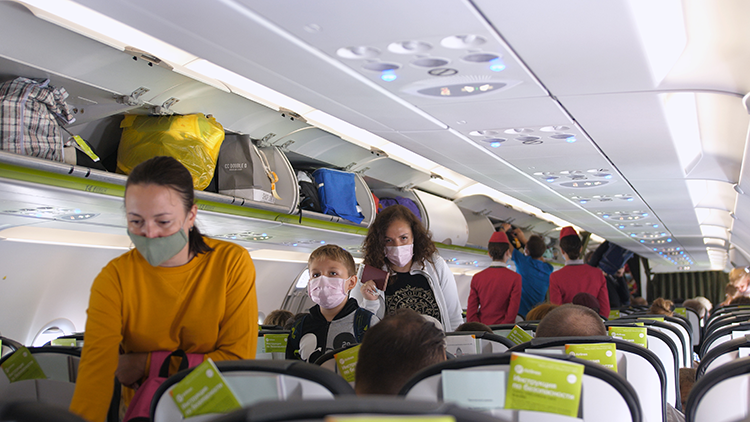Judge says CDC had no authority to adopt mask mandate for planes, public transit

Photo by mariyaermolaeva / Shutterstock.
A federal judge in Florida has vacated a federal mask mandate for planes, buses, trains and transportation hubs.
U.S. District Judge Kathryn Kimball Mizelle of Tampa, Florida, ruled on Monday.
Mizelle said the mask requirement implemented by the Centers for Disease Control and Prevention exceeds its statutory authority and violates the Administrative Procedure Act.
The CDC had issued its mask mandate without following notice and comment procedures under a good cause exception, citing the public health threat.
One plaintiff challenging law said she suffered from anxiety, which was not part of an exception for disabilities. Another plaintiff had panic attacks from mask use. A third plaintiff was the Health Freedom Defense Fund.
The CDC has contended its authority for the mask mandate came from the Public Health Services Act. Since its enactment in 1944, the law has generally been limited to quarantining infected individuals and banning the import or sale of animals known to transmit disease, Mizelle said.
But in the last two years, Mizelle said, the CDC has found the law gave it power “to shut down the cruise ship industry, stop landlords from evicting tenants who have not paid their rent, and require that persons using public conveyances wear masks. Court have concluded that the first two of these measures exceeded the CDC’s statutory authority. … No court has yet ruled on the legality of the third.”
Mizelle said the law gave the CDC the authority to issue regulations to prevent the spread of communicable disease, but then restricted the power grant when it mentioned the type of actions that might be needed: inspection, fumigation, disinfection, sanitation, pest extermination and destruction of contaminated animals and articles.
The government had argued its mandate was authorized as sanitation. Mizelle disagreed. Sanitation is limited to cleaning measures, she wrote, citing use of the word in context and customary usage. It also applies to cleaning things, not people, she said.
And while the mask mandate could be understood as an exercise of the CDC’s power to constitutionally release people to travel despite disease concerns, such power usually is limited to people entering the United States from a foreign country, Mizelle said.
Mizelle also cited a lack of good cause to justify doing away with notice and comment. “The court accepts the CDC’s policy determination that requiring masks will limit COVID-19 transmission and will thus decrease the serious illnesses and death that COVID-19 occasions,” Mizelle said. “But that finding by itself is not sufficient to establish good cause.”
Administrative law was also violated, Mizelle said, when the CDC failed to provide sufficient explanation for its reasoning. “Specifically,” Mizelle wrote, “the CDC omits explanation for rejecting alternatives and for its system of exceptions.”
Hat tip to BuzzFeed News, the Washington Post and the New York Times, which had coverage of the decision.
See also:
ABAJournal.com: “Federal judicial nominee lacks enough experience, ABA says in letter explaining ‘not qualified’ rating”
Write a letter to the editor, share a story tip or update, or report an error.


